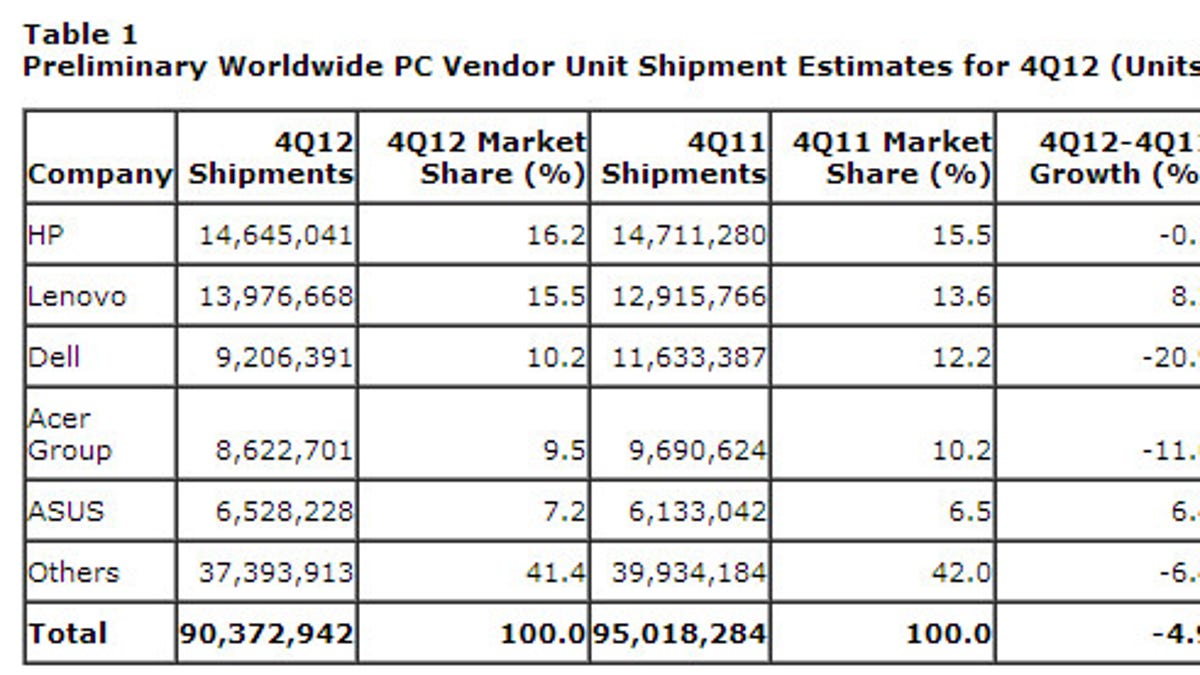
Laptop vendors sold 90.3 million laptops last quarter, but it still wasn’t enough to create positive growth in the industry. According to the most recent report from Gartner, worldwide PC sales dropped 4.9% from the same quarter last year; that’s down from 95 million units in Q4 2011.
The analytics firm offers several explanations for the recent round of doom-and-gloom for PCs. First and foremost, it says "consumers directed their attention elsewhere" during the 2012 holiday season. That "elsewhere" is likely toward tablet devices that offer easier touch-friendly navigation experiences and more comfortable use cases, all for lower price points.
The holidays did pack a boost on low-priced notebooks that were sold in a blizzard of holiday deals, but the small uptick in that sub-category of PCs did little to swell the tide of notebook sales overall.
Second, Gartner says Microsoft’s Windows 8 OS, launched in the first month of Q4 2012 "did not have a significant impact on PC shipments for the rest of the quarter" despite the operating system’s focus on tablet-laptop hybrids machines and input methods that swing from touch to keyboards in a split-second--all designed to compete directly with true tablet devices. That may sound as though the blames lies with Microsoft, but on the contrary, Gartner points the finger at PC vendors who offered Windows 8 machines with "somewhat lackluster form factors" that skipped over touch interfaces.
In fact, the PC vendors who managed to sell more units than the previous year’s Q4 period, each focused heavily on building Windows 8 hybrid laptops. Just who are these lucky vendors? HP, Lenovo, and ASUS.
HP’s growth stuttered at just 0.5%, but the manufacturer is still the number one worldwide PC vendor thanks to 14.6 million units shipped and 16.2% of the market share. The Gartner study attributes that success to HP’s big push in retail outlets during the Windows 8 launch and in stores for the holidays.
That’s a solid silver lining for those manufacturers, but overall, Gartner projects a sea-change in the business of mobile gadgets. In the past, the firm has maintained the view that consumers would want to own tablets and laptops simultaneously, using the former for simple, consumption-based tasks such as web browsing and the latter for more demanding activities like multimedia manipulation or professional output. Not so anymore.
Now the firm has changed its tone to reflect the belief that most consumers will rely exclusively on tablets for everyday tasks, while laptops will become tools for specialized demands. In other words, tablets for play and laptops for work. On the plus side, the report states, PC vendors will enjoy a price increase on laptops, as the need for more robust hardware means consumers will pay more money. They just won’t be purchasing as many.
Via Gartner, TechCrunch
